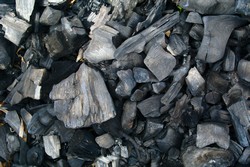Successful Phosphorus recovery from food industrial by-products
Current lineal farming practices rely heavily on external inputs such as mineral fertilisers and chemicals to achieve intensive agricultural production. Agroecological farming methods that recover and recycle critical nutrients and bioenergy are attractive and safer alternatives in the face of growing global concern over imported fertilisers and chemicals used in food production. The goal of the REFERTIL(opens in new window) (Improvement of comprehensive bio-waste transformation and nutrient recovery treatment processes for production of combined natural products) project was to convert local organic waste and food industrial by-product streams in economical industrial scale into safe biochar and compost products produced under competitive market and economic conditions in European dimension. The developed Animal bone bioChar "ABC" is a recovered organic P-fertiliser, made from food grade animal bone grist, having high nutrient density (30 % P2O5) and pure phosphorus content. ABC was designed to be economically affordable, environmentally sustainable, and in accordance with strict EU/MS policy and food safety regulations. The protection of human health and the environment primarily considered for the safe ABC product development. The high product quality was achieved by meeting stringent requirements on the quality and safety criteria while detailed analyses of compost and biochar feed material sustainability is considered as well. The efficiency of the ABC has been field demonstrated in several European countries. Moreover, the application of advanced 3R pyrolysis technology ensured zero emissions production and output product safety, efficiency and market competitiveness. All REFERTIL-developed ABC biochar products are therefore of high grade, fully quality controlled and completely safe under wide range and different climatic, soil and horticultural cultivation conditions, while also used as specific adsorbent In most agri application cases ABC is formulated into BIO-NPK. The REFERTIL applied science researchers and industrial engineers together also developed an extensive policy support for revision of the Fertiliser Regulation (Proposal for regulation of CE marketed fertilising products COM(2016)157). This EU law harmonisation will enhance circular economic developments for recycling and reuse of agri and food industrial by-products and increase the confidence of farmers who are using the high nutrient dense ABC bio-phosphate products for food and feed production. The project also provided market viability information and scientific data for setting up organic by-product and biowaste recycling targets, which supports policymakers in revising EU fertiliser regulations. Thus, improved compost/biochar quality and safety criteria and standards have been developed and determined during REFERTIL policy support works. Although the field demonstrated REFERTIL reached high research maturity TRL status, implementation of full industrial-scale Animal Bone BioChar (ABC) phosphorus recovery and recycling plant require additional investment. REFERTIL has the potential to reduce by up to 20 % (about 500 000 t/y P2O5) the importation of phosphate mineral fertilisers by providing a safe and affordable alternative. This represents a significant contribution to EU's circular economic incentive developments, reducing the carbon footprint and the use of imported and high heavy metal content mineral fertiliser and chemicals, while improving food safety, supply and security. It will also support the bio-based EU economy, particularly in the horticultural farming sector for fresh fruit and vegetable organic production.



